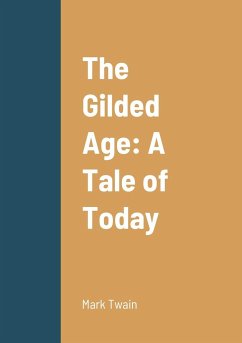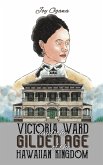The Gilded Age: A Tale of TodaysynopsisJune 18-. Squire Hawkins sat upon the pyramid of large blocks, called the "stile," in front of his house, contemplating the morning.The locality was Obedstown, East Tennessee. You would not know that Obedstown stood on the top of a mountain, for there was nothing about the landscape to indicate it-but it did: a mountain that stretched abroad over whole counties, and rose very gradually. The district was called the "Knobs of East Tennessee," and had a reputation like Nazareth, as far as turning out any good thing was concerned.About the book The Gilded Age in United States history is a period approximately spanning the final three decades of the nineteenth century from the end of the Reconstruction Era in the 1870s to 1900. The term was coined by writers Mark Twain and Charles Dudley Warner in The Gilded Age: A Tale of Today, which they published in 1873, and which satirized what they believed to be an era of serious social problems disguised by a thin gold gilding. Charles Dudley Warner, a writer and editor, was a neighbor and good friend of Mark Twain in Hartford, Connecticut. According to Twain's biographer, Albert Bigelow Paine, their wives challenged Twain and Warner at dinner to write a better novel than what they were used to reading. Twain wrote the first eleven chapters, followed by twelve chapters written by Warner. Most of the remaining chapters were also written by only one of them, but the concluding chapters were attributed to joint authorship. The entire novel was completed between February and April 1873. Contemporary critics, while praising its humor and satire, did not consider the collaboration a success because the independent stories written by each author did not mesh well. A review published in 1874 compared the novel to a badly-mixed salad dressing, in which "the ingredients are capital, the use of them faulty. The term gilded age, commonly given to the era, comes from the title of this book. Twain and Warner got the name from Shakespeare's King John (1595): "To gild refined gold, to paint the lily... is wasteful and ridiculous excess." (Act IV, scene 2) Gilding gold, which would be to put gold on top of gold, is excessive and wasteful, characteristics of the age Twain and Warner wrote about in their novel.
Hinweis: Dieser Artikel kann nur an eine deutsche Lieferadresse ausgeliefert werden.
Hinweis: Dieser Artikel kann nur an eine deutsche Lieferadresse ausgeliefert werden.









